Let's take a look at what's happening in the world of pharmacy and healthcare.
RedSail Technologies Launches RxCash+, Leveraging AI to Achieve Fairer Pricing on Cash Prescriptions for Patients and Pharmacies
The RxCash+ AI-powered tool helps pharmacies set fair and competitive cash prices for medications by taking into account various factors like market fluctuations and the pharmacy's location.
By suggesting data-driven cash prices, RxCash+ aims to streamline the process for pharmacies, eliminating the need for manual price management and the associated burden on staff. Additionally, RxCash+ benefits patients by offering copay assistance opportunities, which promotes prescription affordability.
The program boasts several advantages for both pharmacies and patients:
Pharmacies:
Receive suggested cash prices tailored to their location and patient market.
Gain enhanced price transparency and reporting through real-time dashboards for single or multiple locations.
Access a dedicated pharmacist coach for program and customer support.
Benefit from comprehensive claim validation, including identification of applicable rebates and copay assistance programs.
Obtain performance metrics to track market fluctuations impacting cash prices, patient savings, rebates, and margin goals.
Patients:
Benefit from potentially lower prescription costs through copay assistance opportunities.
Experience greater price transparency with clear communication from pharmacies.
RxCash+ aims to empower pharmacies with the necessary tools, technology, and expert guidance to achieve financial stability while providing quality care to their cash-paying patients.
Elsevier Health Launches ClinicalKey AI Clinical Decision Support Tool for Clinicians
Elsevier Health launched ClinicalKey AI, a new clinical decision support tool that uses artificial intelligence to help doctors find information quickly and easily. ClinicalKey AI is the first tool of its kind to be introduced in the U.S.
The tool is designed to be used at the point of care, and it can answer a wide range of clinical questions, from simple to complex. ClinicalKey AI draws on a variety of sources, including scientific journals, medication information, and clinical reference content.
The tool is also personalized to the clinician using it, and it can take into account factors such as a patient's comorbidities and current medications. ClinicalKey AI is HIPAA compliant and has been developed in line with Elsevier's Responsible AI Principles and Privacy Principles.
ClinicalKey AI was developed in partnership with OpenEvidence, Cone Health, and the University of New Mexico. The tool was also tested by more than 30,000 physicians. ClinicalKey AI is now fully available across the U.S., with launches in other geographies to be announced at a later date.
Sidecar Health and Mark Cuban Cost Plus Drug Company Team Up
Both Sidecar Health and Cost Plus Drugs prioritize transparency and lower costs.
Sidecar Health promotes a transparent insurance model where members keep unused plan funds. Members save an average of $54 per month on prescriptions.
Cost Plus Drugs is an online pharmacy with transparent pricing that applies a 15% markup above manufacturer cost.
The partnership allows Sidecar members to access Cost Plus Drugs' lower prices by filling prescriptions directly through Cost Plus Drugs online pharmacy, with larger savings on specific medications, like Lipitor and Imatinib.
Sidecar members can also use the Team Cuban Card at participating retail pharmacies.
Clarest Health Bolsters Senior Care Pharmacy Reach with Remedi Acquisition
Clarest Health, which offers personalized medication management, has acquired Remedi SeniorCare, expanding its capabilities to serve the growing aging population.
The deal positions Clarest to lead the $5.7 billion post-acute care pharmacy market. Clarest aims to close medication care gaps for seniors across various settings, including hospitals, nursing homes, and assisted living.
The acquisition will allow Remedi's automation technology and patient portal to strengthen a technology-driven approach to medication optimization and fulfillment designed to address critical needs arising from the aging population and caregiver burden.
There’s Divided Opinion on Recent Developments in Drug Importation.
The Partnership for Safe Medicines, or PSM, is fiercely criticizing the FDA's green light for Florida's Canadian drug importation plan, citing safety concerns and potential flooding of the market with counterfeit drugs.
PSM’s criticisms of importation include that:
Bypassing the existing closed-loop system opens the door to counterfeiters and compromises patient safety.
HIV patients and other vulnerable groups are particularly at risk due to increased exposure to counterfeit drugs.
PSM urges caution and encourages further education on the risks of importing drugs from Canada. They direct individuals to safemedicines.org for more information and resources.
Meanwhile, the AIDS Healthcare Foundation, of AHF, welcomes the FDA's approval of Florida's Canadian drug importation plan, acknowledging its potential to combat skyrocketing drug costs in the state with a large senior population.
However, AHF emphasizes that simply importing U.S.-made drugs back from Canada is a cumbersome workaround compared to directly lowering drug prices within the U.S.
AHF encourages broader solutions to tackle the national issue of exorbitant drug prices.
Like what you've heard?



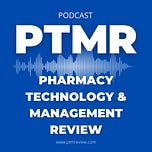

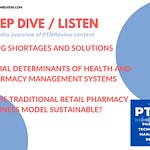
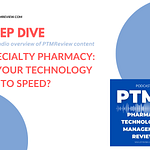
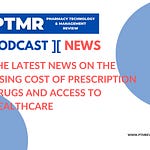



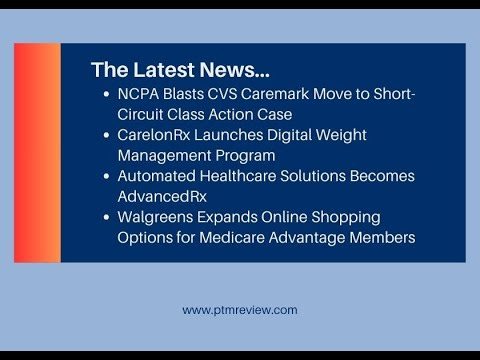
Share this post